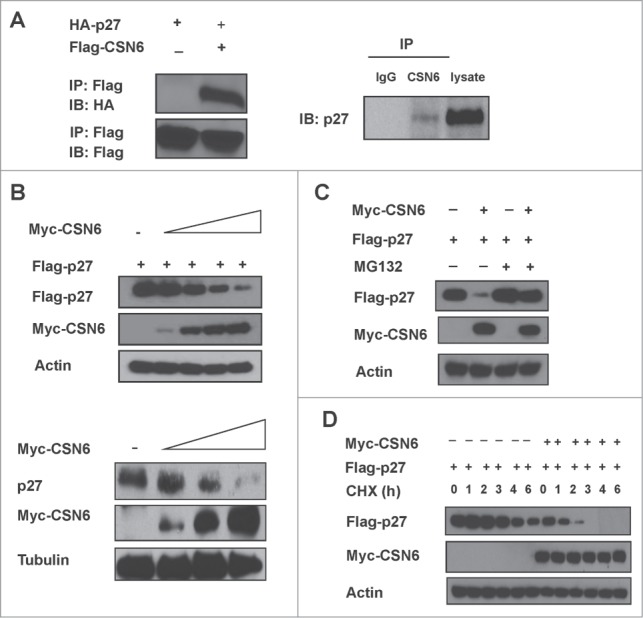Figure 1.

CSN6 interacts with p27 and regulates its stability. (A) Indicated expression vectors were transfected into 293T cells. Lysates were analyzed by IP with Flag and IB with anti-HA. CSN6 interacts with endogenous p27. Lysates of HCT116 cells were prepared and equal amounts of cell lysates were analyzed by immunoprecipitation (IP) with either control mouse IgG or CSN6 and analyzed by immunoblotting (IB) with anti-p27. (B) CSN6 reduced the steady-state expression of p27 in a dose-dependent manner. 293T cells were co-transfected with the indicated expression vectors. Equal amounts of protein from cell lysates were analyzed by immunoblotting with the indicated antibodies. Knockdown of CSN6 upregulates the expression of p27 protein level. Lysates of HCT116 cells infected with either CSN6-shRNA or control shRNA were analyzed by IB with the indicated antibodies. (C) CSN6-mediated destabilization of p27 is proteasome-dependent. 293T cells co-transfected with the either Myc-CSN6 or vector control was treated with or without proteasome inhibitor MG132 before collecting lysates. Lysates were immunoblotted with indicated antibodies. (D) CSN6 increases the turnover of p27. 293T cells co-transfected with the indicated expression vectors were treated with cycloheximide (CHX) (100 µg/ml) for the indicated times. Equal amounts of protein from cell lysates were immunoblotted with indicated antibodies.
